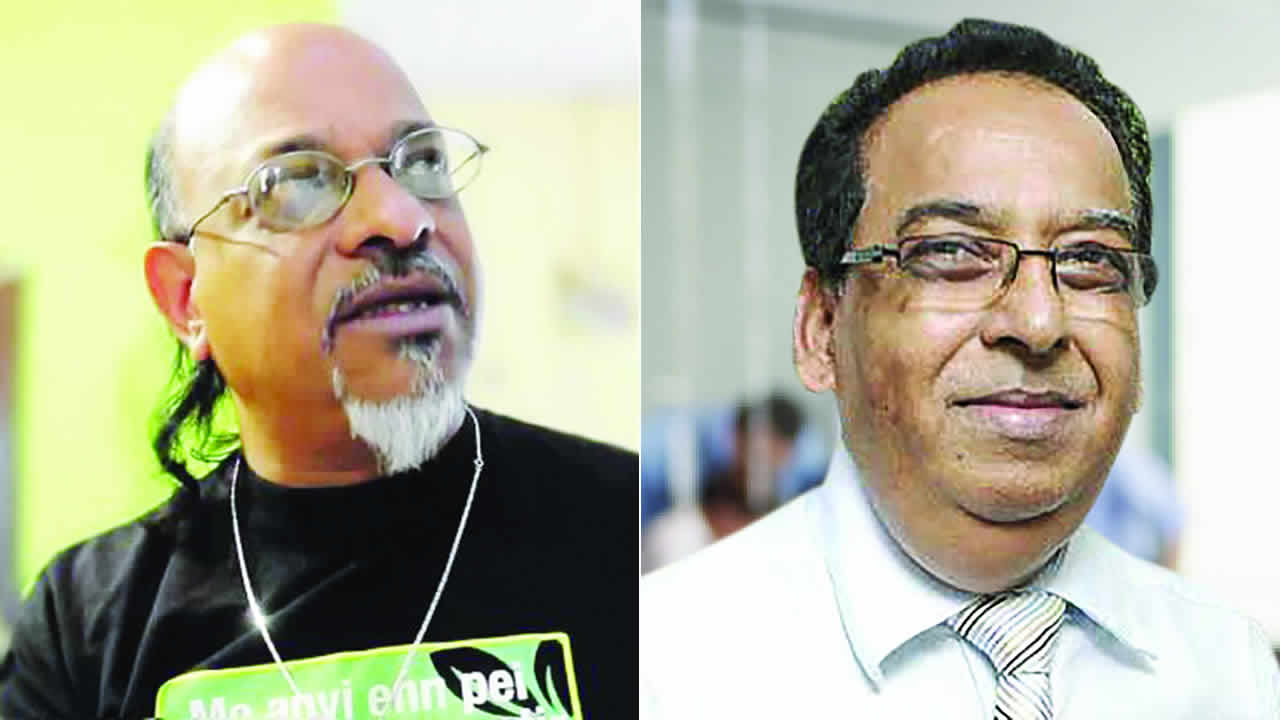
Mauritius has inherited an economic structure which has been inspired by its colonial past. At the start, the country focused mainly on sugar plantation, which was owned by Franco-Mauritians, and then slowly other sectors emerged, such as textiles, tourism and financial services.
The emerging of these sectors brought lots of changes in the working sector as trade union. Azad Jeetun, former President of Mauritius Employment Federation and Ashok Subron, Trade unionist opens the boom of history for the readers.
Azad Jeetun : “There has been tremendous development”
 Azad Jeetun explains that over the past 50 years, there has been tremendous development. “Mauritius was basically known as a country attached to agriculture. In the 1970s, the country began to give way to industrial revolution. The transition from agriculture to industrial sector was not as easy as it is perceived. The country had to adapt itself in terms of labour and see how this sector could bring its contribution in the economy. Similarly, with the emergence of the textile sector, women started to integrate the working sector. It was a daring move as women started to get out from the four walls of the house and enter factories to work. From there started a new journey for women workers. This sector easily employed around 90,000 workers at that time.”
Azad Jeetun explains that over the past 50 years, there has been tremendous development. “Mauritius was basically known as a country attached to agriculture. In the 1970s, the country began to give way to industrial revolution. The transition from agriculture to industrial sector was not as easy as it is perceived. The country had to adapt itself in terms of labour and see how this sector could bring its contribution in the economy. Similarly, with the emergence of the textile sector, women started to integrate the working sector. It was a daring move as women started to get out from the four walls of the house and enter factories to work. From there started a new journey for women workers. This sector easily employed around 90,000 workers at that time.”
Moreover, he states that further development occurred with the emergence of service, banking and finance sectors. “At the start, we needed just simple skilled workers but with evolution, we needed another pool of labour which were more qualified and professionals. Areas like international finance needed more professionals. In the year 1989 and 1990s, the need for foreign workers was felt. Countries like China and Bangladesh were targeted. Then came a period where our labour was not as productive as we expected. We had to improve our skills and competencies. Massive investments in training started for Mauritian labour force.”
With our education system evolving, our working sector has more experienced and qualified labour today. “Today we have more specialised services in different fields and hence, we need more professionals. Still, there are lots that can be done to produce the skills our country needs. Today, our country is unfortunately facing the issue of unemployment. So, there is need to tackle this issue by reviewing the training given.”
Ashok Subron : “The fight of trade unions for employment rights has known various changes”
 Trade Unionist Ashok Subron confides that Mauritius’ history dates back to the period of colonialism. “The fight of trade unions for employment rights has known various changes since independence. However, we need to recall the fight for employment rights in the slavery system. The fight of workers began as early in the 1940s. But a snowball effect began post independence. One of the major events has been the biggest strike of the year 1970 and 1971, which gave birth to the General Workers Federation. This has given another turn to the working sector.”
Trade Unionist Ashok Subron confides that Mauritius’ history dates back to the period of colonialism. “The fight of trade unions for employment rights has known various changes since independence. However, we need to recall the fight for employment rights in the slavery system. The fight of workers began as early in the 1940s. But a snowball effect began post independence. One of the major events has been the biggest strike of the year 1970 and 1971, which gave birth to the General Workers Federation. This has given another turn to the working sector.”
In the early 70s, other events marked the history, says Ashok Subron. “There was state emergency due to trade unionists. That area also witness issues like censorship of the press, abolition of the public gathering. So, the fight of the workers got stronger and tougher. The Mauritian workers began to unite to fight for basic rights such as remuneration and payslip.”
Additionally, he remarks that there has been the introduction of COLA (Cost of Living Allowance) which emerged after a strong fight. “The workers then began another fight against redundancy. In 1979 and 1980, there has been a second strike and it was a turning point. In 1982, the government refused to change the Industrial Relation Act to protect workers from termination. The year 1983 was filled with difficulties. The fight got intense.”
Post 1982, there has been the revocation of Industrial Relation Act. “It is in 2008-2009 that amendments were brought and the fight continued mostly among the employees of the sugar industry, the port and transport. There has been the revival of the General Workers Federation. Besides, in 2012-2013, amendments limiting the law of strike were debated. Since then, the sector is still progressing and fighting for different causes. With the emergence of new sectors like the service and finance, there are more challenges to face. The trade union is all braced up.”
 J'aime
J'aime














